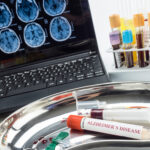The Impact of Hydration on Brain Function in Dementia Patients
Maintaining proper hydration is crucial for everyone, but it becomes even more important for individuals with dementia. Dementia is a condition that affects memory, cognition, and daily functioning, and dehydration can exacerbate its symptoms. In this article, we will explore how hydration impacts brain function in dementia patients and discuss practical ways to ensure they stay hydrated.
### Why Hydration Matters
The brain is composed of about 75% water, making hydration essential for its proper functioning. Dehydration can lead to cognitive decline, confusion, and mood swings, which are particularly concerning for dementia patients. Even mild dehydration can impair cognitive performance, affecting concentration and alertness. This is why staying hydrated is vital not only for bodily health but also for maintaining mental clarity and preventing further cognitive decline.
### Risks of Dehydration
Dehydration poses significant risks for dementia patients. It can cause confusion, fatigue, and worsening cognitive function. Common signs of dehydration include dry mouth, decreased urine output, fatigue, dizziness, and confusion. These symptoms can be easily misattributed to normal aging or dementia itself, making early detection crucial. Caregivers should be vigilant for these signs and ensure that fluid intake is prioritized.
### Challenges in Hydration
Dementia patients often face challenges in staying hydrated. The natural decline in thirst sensation with age makes it difficult for them to recognize when they need to drink. Additionally, physiological changes, such as reduced body water percentage and kidney function, exacerbate this issue. Medications, especially diuretics, can further contribute to fluid loss, increasing dehydration risk. Cognitive decline can also impair memory, causing individuals to forget to drink.
### Strategies for Hydration
To combat these challenges, caregivers can adopt several strategies:
1. **Encourage Regular Fluid Intake**: Reminders or scheduled drinking times can be effective. Providing appealing, flavored water options may enhance consumption.
2. **Incorporate Hydrating Foods**: Foods with high water content, such as cucumbers, watermelon, and broths, can support hydration efforts.
3. **Make Fluids Accessible**: Ensure that fluids are easily accessible throughout the day to reduce barriers to intake.
4. **Monitor Hydration**: Keep track of fluid intake and watch for signs of dehydration.
### Additional Dietary Support
While hydration is essential, a balanced diet also plays a critical role in supporting brain health. Foods rich in omega-3 fatty acids, such as fatty fish, and antioxidants can help reduce inflammation and support cognitive function. Olive oil, rich in monounsaturated fats and polyphenols, has been shown to improve brain circulation and reduce oxidative stress, potentially protecting against dementia.
In conclusion, hydration is a critical aspect of managing dementia. By understanding the risks of dehydration and implementing strategies to ensure adequate fluid intake, caregivers can help dementia patients maintain better cognitive function and overall well-being. Combining hydration with a balanced diet can further enhance brain health and quality of life.



